#Antoine Vitez
Explore tagged Tumblr posts
Text
30 aprile … ricordiamo …
30 aprile … ricordiamo … #semprevivineiricordi #nomidaricordare #personaggiimportanti #perfettamentechic
2021: Claudia Barrett, Imagene Williams, attrice statunitense. E’ stata sposata con l’attore Alan Wells. Wells in seguito sposò l’attrice Barbara Lang, ma Lang chiese l’annullamento, sostenendo che Wells non aveva ricevuto il divorzio definitivo da Barrett quando si erano sposati. (n.1929) 2020: Sam Lloyd, attore, musicista e cantante statunitense. Nipote dell’attore Christopher Lloyd. (n.…

View On WordPress
#Agnes Moorehead#Agnes Robertson Moorehead#Antoine Vitez#Arlette Caroline Bernadette Poirier D&039;Auvergne#Arlette Poirier#BJ Hogg#Bryant Washburn#Claudia Barrett#comtesse de La Falaise#David Opatoshu#Franklin Bryant Washburn III#George Murdock#George Risk Sawaya Jr.#Gia Scala#Giovanna Scoglio#Gordon Merrill Werschkul#Gordon Scott#Helen Chandler#Hesperia#Imagene Williams#Inger Stevens#Judi Clare Meredith#Judi Meredith#Luigia Manfrini Farné#Luisa Ferida#Mary McCarty#Maxime de la Falaise#Maxime de La Falaise McKendry#Maxime Le Bailly#Osvaldo Valenti
1 note
·
View note
Text
Je pense que nous savons presque tout, tout de suite. Notre enfance nous suffit largement. Notre adolescence, notre jeunesse, nous suffisent à peu près pour savoir tout.
Antoine Vite sur Brecht et Aragon
0 notes
Text
Not to bring back Orestes and Pylades on the dash but sometimes I see the "I'll fucking do it but christ alive" textpost attached to characters that are sooooo "not to me not if it's you" and it's like no!!!!! you did not see the forest for the joke!!!!!!
#anyway watch antoine vitez's 3 times elektra or whatever#it's got nothing to do with it i just have to mention it if i talk about pylades
0 notes
Text
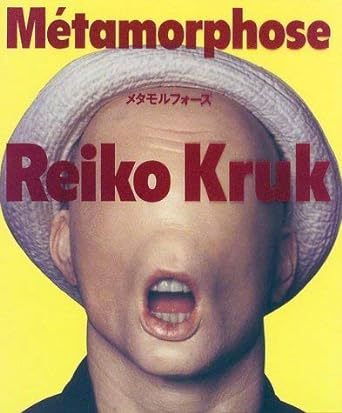

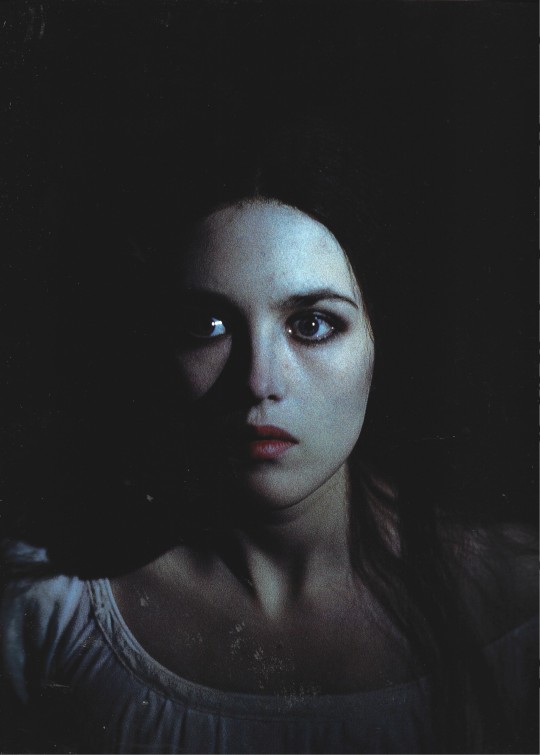
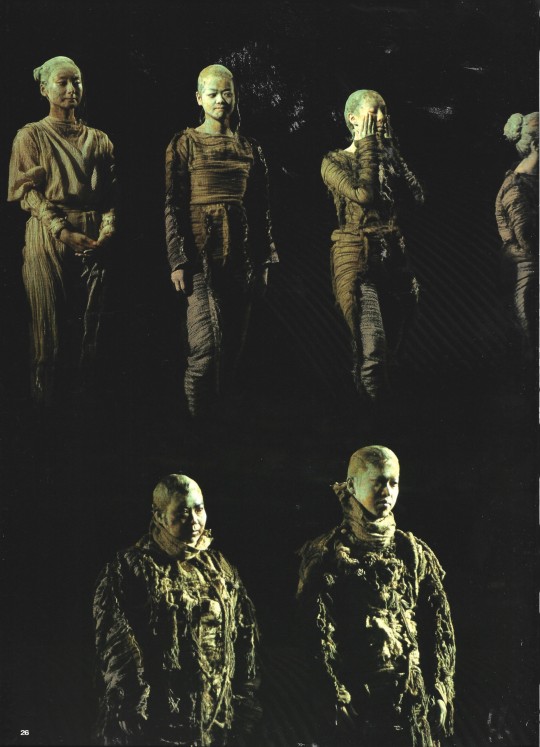


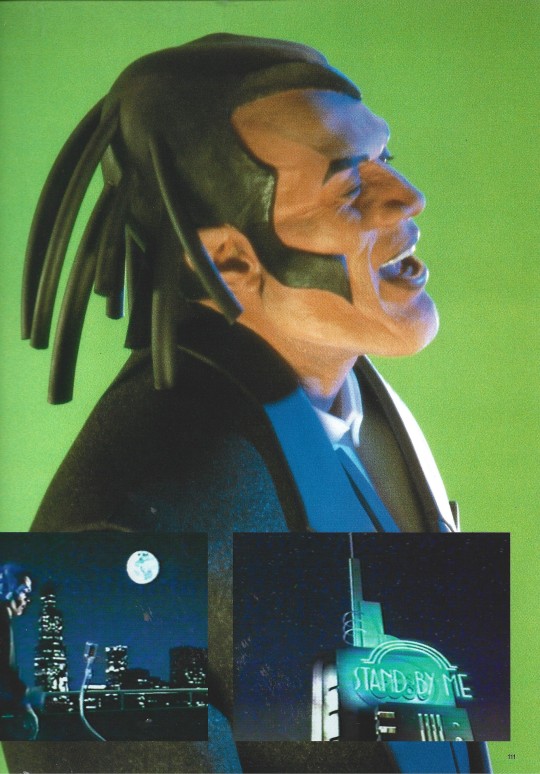

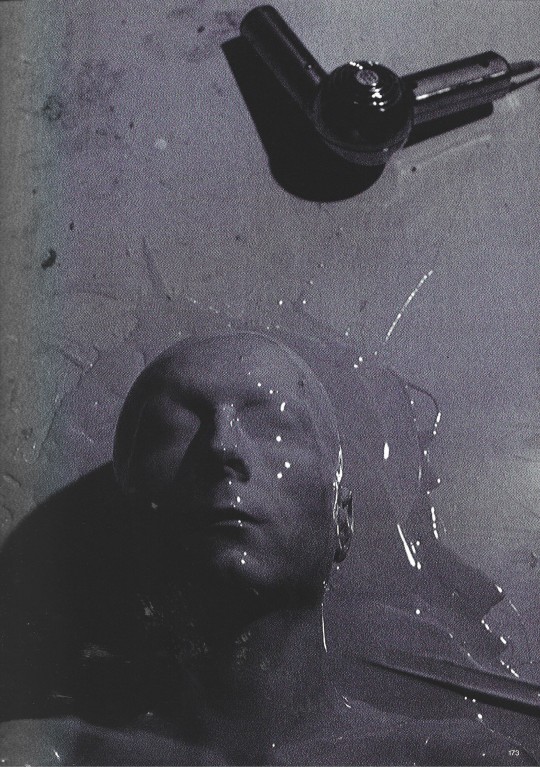
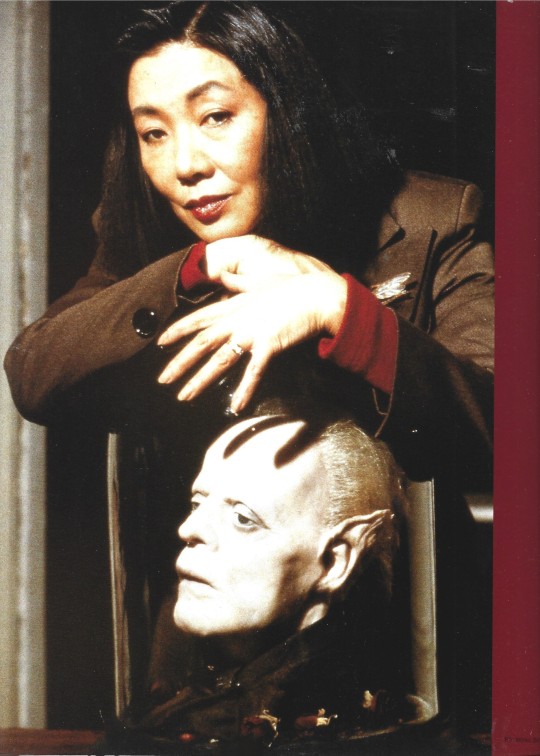
Reiko Kruk Métamorphose
Bijutsu Shuppan-Sha Ltd. Tokyo 1997, 200 pages, 25x20cm., softcover, Text in French and Japanese, ISBN 4568170451
euro 80,00
email if you want to buy [email protected]
Née à Nagasaki. Elle travaille pour TV Nagasaki NBC comme responsable de films publicitaires, puis s’installe à Osaka ou elle développe de nouveaux produits pour une société de cosmétique. En 1971, elle arrive à Paris. D’abord conseillère artistique en cosmétique pour L’Oréal et Guerlain, elle souhaite élargir son champs d’action dans le milieu du spectacle.
Elle crée l’atelier Métamorphose, se concentrant sur le développement de maquillage d’effets spéciaux. Métamorphose est renommé pour son travail de haute qualité et créativité, dans les domaines du cinéma, du théâtre, de l’opéra et de la publicité. Reiko Kruk a collaboré avec de nombreux metteurs en scène tels que Werner Herzog, Claude Lelouch, Arnaud Desplechin, Patrice Chereau, Rudolf Noureev, Antoine Vitez, Bob Wilson, Julie Taymor, Hiroshi Teshigawara, Jean-Paul Goude, Just Jaeckin, Etienne Chatillez… Elle est directrice artistique du film Madame Butterfly de Frédéric Mitterand, et conseillère sur de nombreux autres projets. Elle écrit et réalise plusieurs court-métrages pour la télévision française et japonaise, ainsi que des clips.
Son parcours et ses désirs l’amènent à la sculpture, et ses travaux ont été exposés à la Fondation Cartier, “Skin-Art” au Japon, dans les galleries d’Artium, Parco, Kirin Plaza, chez Enrico Navarra, à Paris et au Musée de la Civilisation de Quebec au Canada. Elle publie Métamorphose chez Bijutsu Shuppansha en 1997, Bakeshoshi chez Little More en 2010, et Akatombo – La libellule rouge, Journal de Keiko, 1945 chez Nagasaki Bunken-sha en 2013.
13/10/23
6 notes
·
View notes
Text
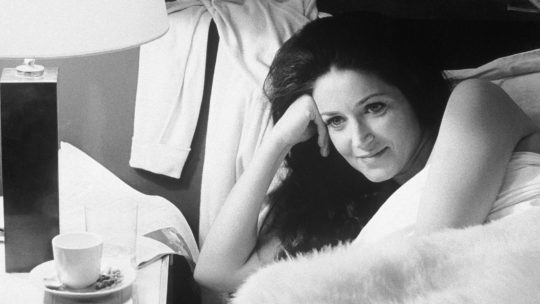
Françoise Fabian in My Night at Maud's (Éric Rohmer, 1969)
Cast: Jean-Louis Trintignant, Françoise Fabian, Marie-Christine Barrault, Antoine Vitez, Léonid Kogan, Guy Léger, Anne Dubot. Screenplay: Éric Rohmer. Cinematography: Néstor Almendros. Production design: Nicole Rachline. Film editing: Cécile Decugis.
A moral tale: Once upon a time, a brave and chaste knight saw a fair young lady in church, and wished that she were his. The devil, hearing this, arranged for the knight to be tempted by a beautiful sorceress. But when the knight resisted the carnal temptations of the sorceress, he was rewarded with the love and the hand of the fair young lady. Éric Rohmer's moral tale: Jean-Louis (Jean-Louis Trintignant), an engineer who has recently moved to Clermont-Ferrand, is an intellectual Catholic, determined at the age of 34 to settle down and get married after several failed love affairs. At mass one day he sees a beautiful young woman (Marie-Christine Barrault), and longs to get to know her. Leaving the church, he sees the woman get on a moped, and he follows her in his car until they are separated by traffic. Jean-Louis runs into an old friend, Vidal (Antoine Vitez), a philosophy professor and a Marxist, who takes him to see his friend, Maud (Françoise Fabian), a divorcee. Vidal gets drunk and leaves early, and when it begins to snow heavily, Jean-Louis stays to spend the night with Maud. But they do little more than talk -- about his Catholicism, about the philosophy of Pascal, about his life and hers. She and her husband were unfaithful to each other, and her lover was killed when his car skidded on the ice -- one reason she forbids Jean-Louis to drive in the snow. They literally sleep together: She in the nude, he fully clothed and wrapped in a coverlet she lends him, though both are in the same bed. In the morning he makes a pass at her that she brushes off, and as he looks out the window he sees the young woman he saw at mass, and runs out to introduce himself to her. Her name is Françoise, and she is a student at the university where Vidal teaches. They make a date for later in the day, and afterward he drives her home to her student apartment. Stuck in the snow again, he spends the night, but not in her room: She gives him a key to the apartment of another student who is away. Five years later, they are married and taking their young son to the beach, when they meet Maud on the path. Jean-Louis realizes from Françoise's reaction that she knows Maud -- in fact, Françoise, who has confessed that she had an affair with a married man, may have been the lover of Maud's husband. This is the third of Rohmer's "Six Moral Tales," and perhaps the most successful: It was nominated for Oscars for Rohmer's screenplay and as the best foreign-language film. But a lot of critics and viewers found it insufferably talky in that peculiarly French over-intellectualized way -- a curious objection to a film that features four attractive actors and a strong emphasis on sex. And the talk is far wittier than anything you're likely to hear in a movie today.
3 notes
·
View notes
Photo
My Night at Maud’s (Éric Rohmer, 1969)
Cast: Jean-Louis Trintignant, Françoise Fabian, Marie-Christine Barrault, Antoine Vitez, Léonid Kogan, Guy Léger, Anne Dubot. Screenplay: Éric Rohmer. Cinematography: Néstor Almendros. Production design: Nicole Rachline. Film editing: Cécile Decugis.




Ma nuit chez Maud (My Night at Maud’s, 1969) dir. Éric Rohmer
1K notes
·
View notes
Text
L’ATELIER METOPE
L’association 1901, LES CORPUSCULES VATER PACINI(1), qui a déjà apporté ses concours à la création de spectacles, à l’organisation et à l’animation de programmes de formation, à la mise en place d’expositions(2), s’investit en 2023 dans la conception et la réalisation d’un programme ambitieux intitulé : ATELIER METOPE .
L’ATELIER METOPE(3) réunira les énergies créatrices de celles et ceux qui choisiront, tous langages artistiques confondus (théâtre, musique, sculptures, images peintes, filmées, numériques , écritures…) de conjuguer leurs compétences et leurs désirs artistiques pour réaliser un objet esthétique qui leur sera commun, marqué par leur goût de l’innovation et leur désir d’inscrire sa réalité dans la réalité sociale et culturelle de la cité .
En s’adressant à tous :
Eternels apprentis des « joies aigües » et solidaires
Défricheurs infatigables des audaces sincères
Pourvoyeurs de bienveillance
L’ATELIER METOPE se veut être un des acteurs du réenchantement culturel attendu .
En cristallisant les énergies créatrices de ses acteurs qui ne sont pas « des oiseaux de passage » mais d’authentiques transmetteurs, sur un territoire donné, des forces vies de l’imagination METOPE souhaite inaugurer une forme d’action artistique plus naturellement participative, d’abord et avant toute autre considération, forte par ses dimensions poétique (4) .
Son fonctionnement opérationnel applique une règle simple valorisée en son temps par le metteur en scène ANTOINE VITEZ, et pas uniquement pour des motifs économiques : FAIRE ASSOMPTION DE PAUVRETE .
NOUS Y VOILA !
Et si c’est un défi – il n’est pas d’aujourd’hui et comme chaque fois, il peut et doit être relevé .
Pour ce qui concerne l’immédiat, METOPE essaiera avec quelques petits riens de réaliser un petit quelque chose qui ne soit pas rien .
Pour ce faire, rejoignons SAMUEL BECKETT qui disait vouloir écrire « le pire jusqu’à ce qu’il fasse rire »
SAMUEL BECKETT, prix Nobel de littérature en 1969, écrivain irlandais et français, traducteur, poète , metteur en scène, homme de radio et de télévision – en un mot, ARTISTE mais également RESISTANT (5) et GRAND EUROPEEN ( spécialiste de DANTE, GOETHE, PASCAL… qu’il lisait en langue originale) .
Son œuvre, déjà bien connue des « amis fidèles » du théâtre est encore riche de textes à découvrir (théâtre, récits, poésie ) . NOUS Y TRAVAILLONS – et le prochain numéro de ce journal de création vous présentera ceux pour lesquels nous sommes engagés .
Ils composeront le programme METOPE 2023 et seront rassemblés par un titre commun emprunté à SAMUEL BECKETT lui-même : E N C O RE ( dans CAP AU PIRE, ENCORE est le premier et dernier mot du livre ) .
P R O G R A M M E présenté du 8 au 12 NOVEMBRE 2023
SALLE EIFFEL – rue de la TOUR NEUVE à ORLEANS
Nous vous adressons les premières feuilles de ce journal de création. Vous en êtes les premiers destinataires en raison de votre attention déjà déclarée pour METOPE/BECKETT/2023 .
D’avance merci de bien vouloir nous aider à faire connaitre ce programme . Celles et ceux dont vous nous confierez les coordonnées recevront également ce document _ (1) nom attribué à des cellules de la peau . Elles captent les vibrations extérieures .
(2) REVEILLONNEZ MOI /Simone de Beauvoir – JE NE SUIS PAS SEUL /YNEL SAITHAMM /EXPO L’ENVOL D’ICARE /Salle Y.MONTAND et le duit saint Charles .
(3) METOPE : du grec metopê – un trou dans le toit pour laisser passer la lumière .
(4)dérivé du grec poiein /fabriquer , créer , agir
(5) résistant, d’abord à Paris puis, poursuivi par la gestapo il doit se réfugier dans le petit village de ROUSSILLON EN VAUCLUSE . En 1946 il s’engagera avec la croix rouge irlandaise et participera à l’installation d’un hôpital de campagne à SAINT LO . Il écrira « CAPITALE DES RUINES » .
.
0 notes
Text
Bologna: “Se ci fosse luce” di Francesca Garolla al Teatro delle Moline
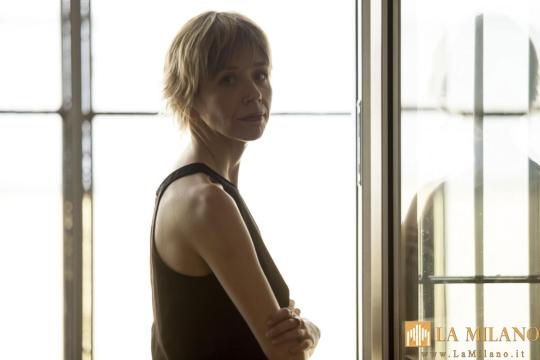
Bologna: “Se ci fosse luce” di Francesca Garolla al Teatro delle Moline. Al Teatro delle Moline andrà in scena, in prima assoluta, da martedì 28 marzo a domenica 2 aprile “Se ci fosse luce” di Francesca Garolla. Lo spettacolo si interroga sul libero arbitrio e sulle sue possibili conseguenze a partire dai fatti del sequestro Moro. «Se ci fosse luce, sarebbe bellissimo», scriveva Aldo Moro a sua moglie durante i giorni del sequestro, poco prima di morire. Terza parte di una trilogia attorno al tema della libertà – composta da Tu es libre e Io sono testimone – la pièce è una produzione LAC Lugano Arte e Cultura in collaborazione con Emilia Romagna Teatro ERT / Teatro Nazionale. A partire dalla famosa telefonata del 9 maggio 1978 in cui Valerio Morucci, esponente delle Brigate Rosse e “responsabile della logistica” del rapimento di Aldo Moro, comunica all’avvocato Francesco Tritto la morte del Presidente della DC, Garolla analizza le conseguenze della storia collettiva sul singolo individuo e sul futuro. «Nel 1978, alla morte di Moro, io non ero nata – riflette l’autrice – non ho vissuto i fatti che a quella morte hanno portato e che quella morte ha provocato. I miei ricordi hanno solo l’eco di quella storia, un’eco infantile. Suggestioni, racconti riferiti, romanzati, probabilmente non veritieri, ripetuti a me stessa come fossero leggenda. Ma anche se assente, la mia generazione ha ereditato quei fatti come se li avesse vissuti». La nota telefonata diviene dunque un pre-testo per riflettere sul peso di un’eredità che sembra ancora condizionarci. «Questo episodio, la telefonata, questa lotta per una libertà privata del valore della vita, – commenta Garolla – diventano per me simbolo di un tempo interrotto, bloccato, che ha scartato in una direzione e non in un’altra. Un qualcosa che ci condiziona e ci ha condizionato, qualcosa che forse non volevamo: un’eredità. Ma chi si prende, oggi, la responsabilità di quell’eredità? Chi si prende la responsabilità del passato nel presente? E chi quella del presente e del futuro?» Da queste domande nascono i quattro personaggi dello spettacolo e le loro differenti “responsabilità”: sono due uomini e due donne, i primi incarnano un passato che ha condizionato il presente e le seconde analizzano quel passato per costruire il loro futuro. Nominati nel testo in virtù della storia che li attraversa – un latitante che è anche un padre, una figlia che è anche una madre, un uomo che è anche un assassino, una giudice che è anche una donna – saranno portati a rileggere e processare la storia e i suoi protagonisti, attorno a un tavolo mortuario, «un oggetto-palcoscenico adatto a un’autopsia della Storia, tra morte e aula di tribunale, Cenacolo e pulpito pagano». «Ma a quale funerale stiamo assistendo? A quello di una libertà che, quando non si interroga sulle sue conseguenze, perde di senso, di valore e di possibilità? Chi aspetta di essere seppellito? Moro? La storia? La nostra stessa memoria? In assenza di un corpo – esattamente come accadde alle Esequie di Stato del Presidente, dove fu celebrata una bara vuota – è difficile seppellire un morto?». Francesca Garolla studia regia all’Accademia d’arte drammatica Paolo Grassi di Milano. Tra i suoi testi: Non correre Amleto, selezionato nel Palmarès della Maison Antoine Vitez del 2018 e da La Comédie Française nel 2019; Tu es libre, tradotto per la Maison Antoine Vitez, è realizzato a La Chartreuse – Centre National des écritures du spectacle di Avignone, presentato nei Rencontres d'été durante il Festival d'Avignone 2017, segnalato da la Comédie Française come uno dei testi più significativi della stagione 2017/18 e finalista al Premio Riccione 2017. Nel 2020/21 è l’unica lauréat europea della sezione di scrittura teatrale della Cité Internationale des arts di Parigi, dove scrive Se ci fosse luce, terza parte di una trilogia sulla libertà, ispirato ai fatti del sequestro Moro. Nel 2022 riceve il premio Valeria Moriconi futuro della scena, su segnalazione di Emma Dante. Per diciotto anni è parte della direzione artistica di Teatro i, con Renzo Martinelli e Federica Fracassi. È attualmente autrice selezionata nel progetto europeo Fabulamundi – Playwriting Europe.... #notizie #news #breakingnews #cronaca #politica #eventi #sport #moda Read the full article
0 notes
Photo
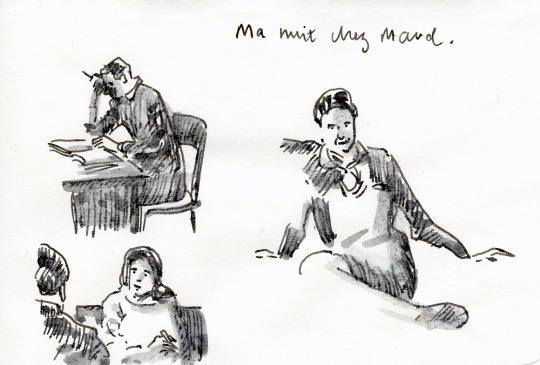
En regardant “Ma nuit chez Maud” de Eric Rohmer, hier soir.
#ma nuit chez maud#eric rohmer#jean louis trintignant#francoise fabian#marie christine barrault#antoine vitez
25 notes
·
View notes
Photo
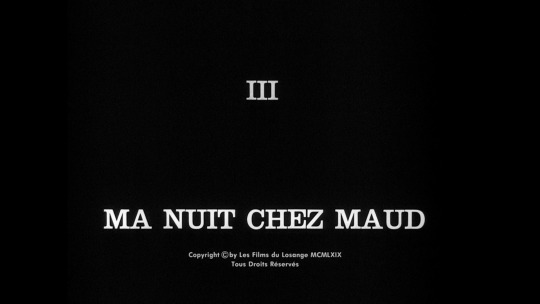
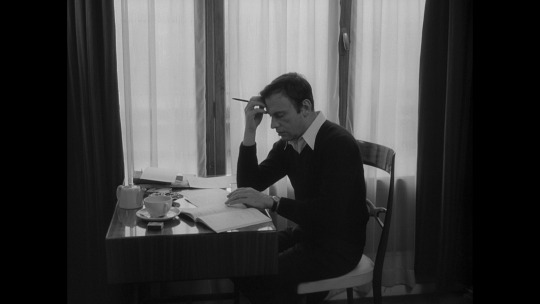
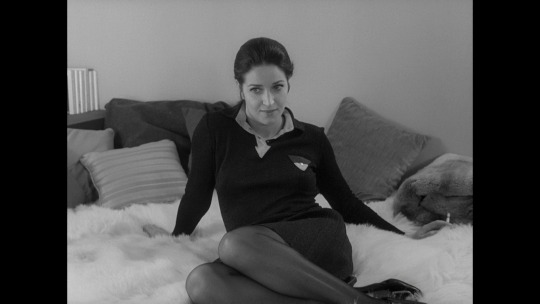
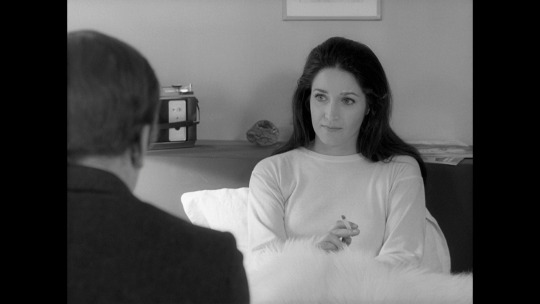
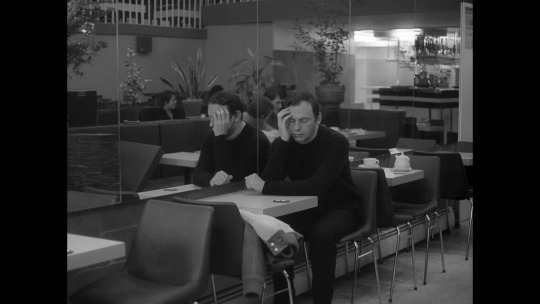
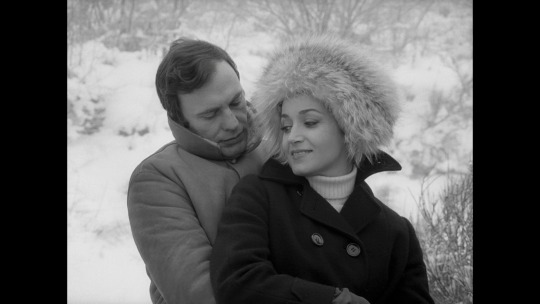
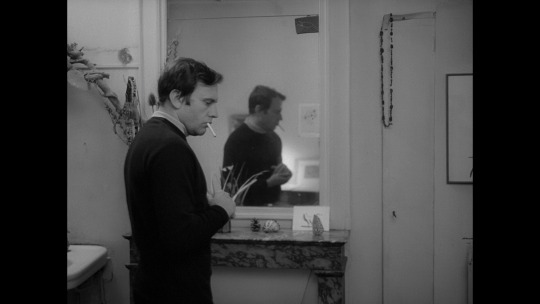
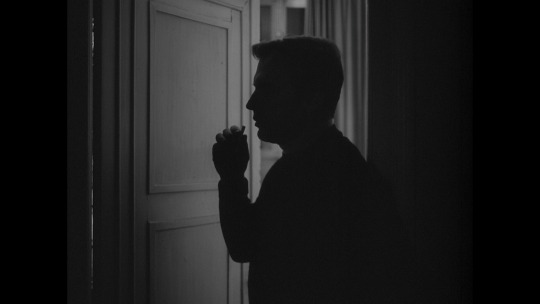
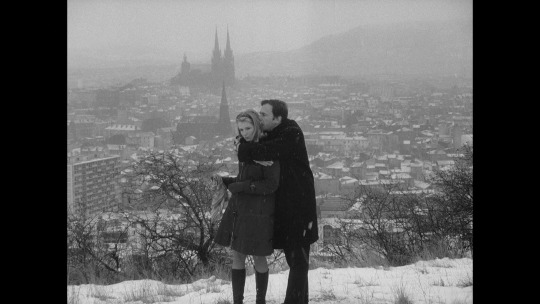
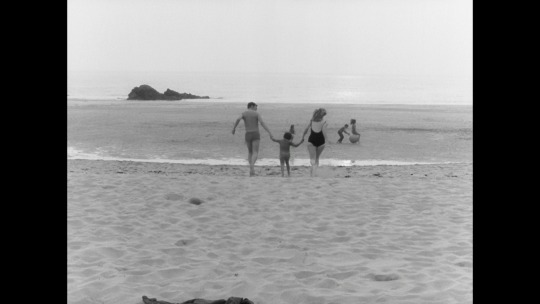
Ma nuit chez Maud, 1969 Dir. Éric Rohmer
#Ma nuit chez Maud#Éric Rohmer#Jean-Louis Trintignant#Françoise Fabian#Marie-Christine Barrault#Antoine Vitez
25 notes
·
View notes
Photo

- You do shock me. - So you've said. - You're the most outrageous person I've met. Religion has always left me cold. I'm neither for nor against it. But people like you prevent me from taking it seriously. All that really concerns you is your respectability. Staying in a woman's room after midnight is dreadful. It would never occur to you to stay because I'm lonely. To establish a slightly less conventional relationship even if we should never meet again. This I find stupid - very stupid and not very Christian. - It's nothing to do with religion. I just thought you might be tired. - Do you still think so?
My Night with Maud’s (Ma nuit chez Maud), Éric Rohmer (1969)
#Éric Rohmer#Jean Louis Trintignant#Françoise Fabian#Marie Christine Barrault#Antoine Vitez#Néstor Almendros#Cécile Decugis#1969
15 notes
·
View notes
Text
30 aprile … ricordiamo …
30 aprile … ricordiamo … #semprevivineiricordi #nomidaricordare #personaggiimportanti #perfettamentechic
2021: Claudia Barrett, Imagene Williams, attrice statunitense. Ha iniziato a prendere lezioni di recitazione in tenera età per superare la sua timidezza. Sebbene fosse principalmente coinvolta con la televisione, la carriera di attrice di Barrett è iniziata con il cinema alla fine degli anni Quaranta e Cinquanta. La sua prima apparizione cinematografica è stata nel film noir classico del 1949.…

View On WordPress
#Agnes Moorehead#Agnes Robertson Moorehead#Antoine Vitez#Arlette Caroline Bernadette Poirier D&039;Auvergne#Arlette Poirier#BJ Hogg#Bryant Washburn#Claudia Barrett#comtesse de La Falaise#David Opatoshu#Franklin Bryant Washburn III#George Murdock#George Risk Sawaya Jr.#Gia Scala#Giovanna Scoglio#Gordon Merrill Werschkul#Gordon Scott#Helen Chandler#Hesperia#Imagene Williams#Inger Stevens#Judi Clare Meredith#Judi Meredith#Luigia Manfrini Farné#Luisa Ferida#Mary McCarty#Maxime de la Falaise#Maxime de La Falaise McKendry#Maxime Le Bailly#Osvaldo Valenti
1 note
·
View note
Photo
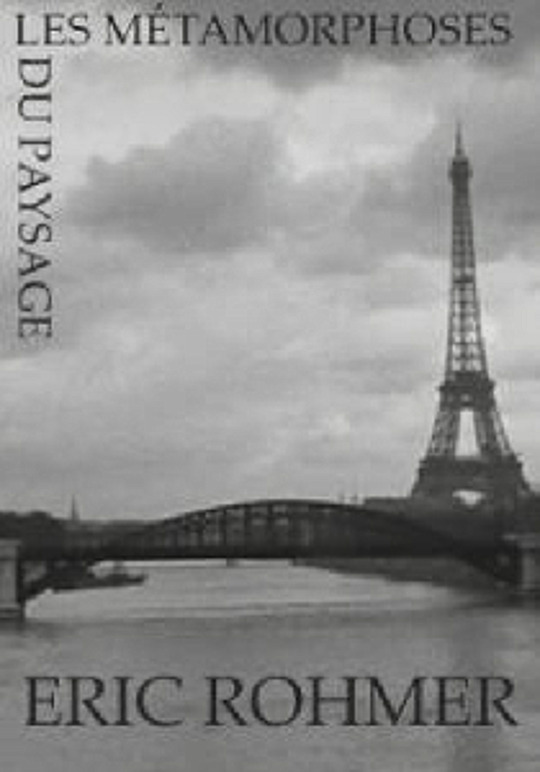
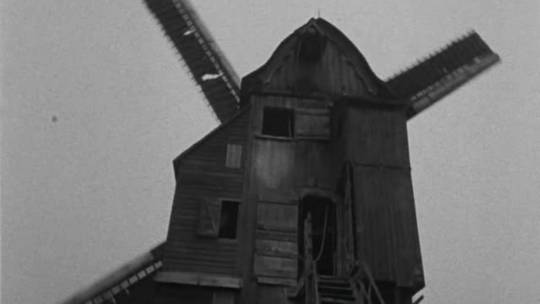
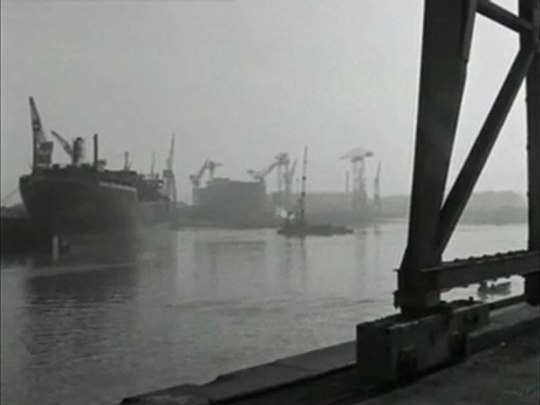
Changing Landscapes (L'ère industrielle: Métamorphoses du paysage) (1964) Éric Rohmer
August 19th 2020
#changing landscapes#l'ere industrielle: metamorphoses du paysage#1964#eric rohmer#antoine vitez#documentary#short
2 notes
·
View notes
Photo
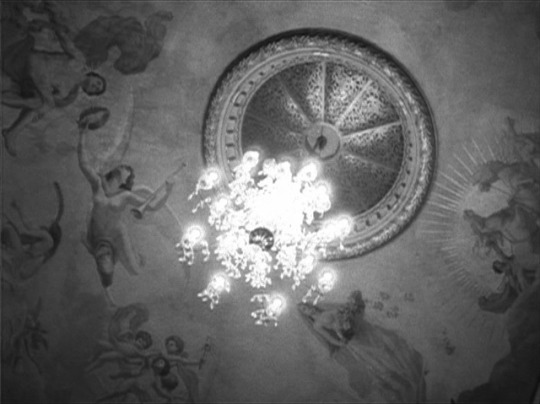
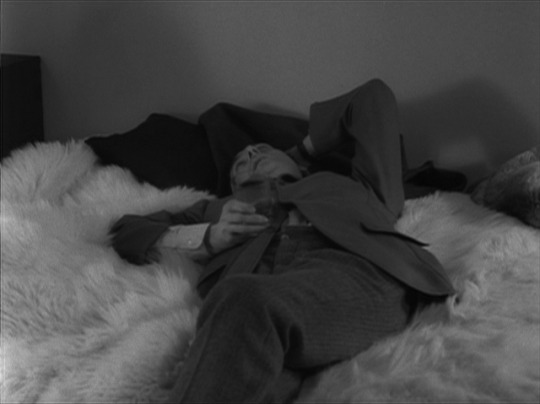
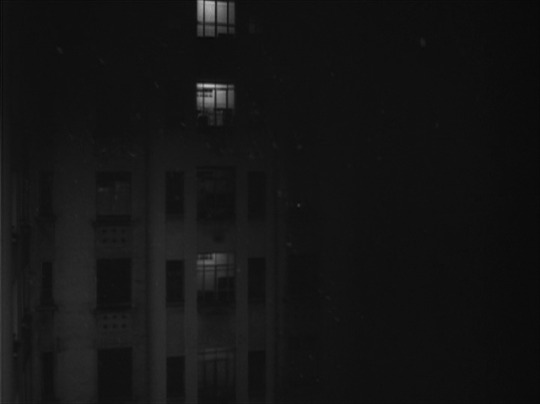
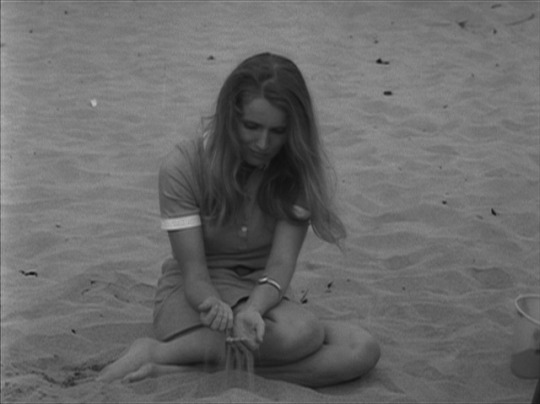
ma nuit chez maud (1969) dir. éric rohmer
women have taught me a lot, morally speaking.
france | jean-louis trintignant, françoise fabian, antoine vitez
#ma nuit chez maud#60s#éric rohmer#eric rohmer#jean louis trintignant#françoise fabian#antoine vitez#marie christine barrault#léonide kogan#Black and White#france
113 notes
·
View notes
Photo
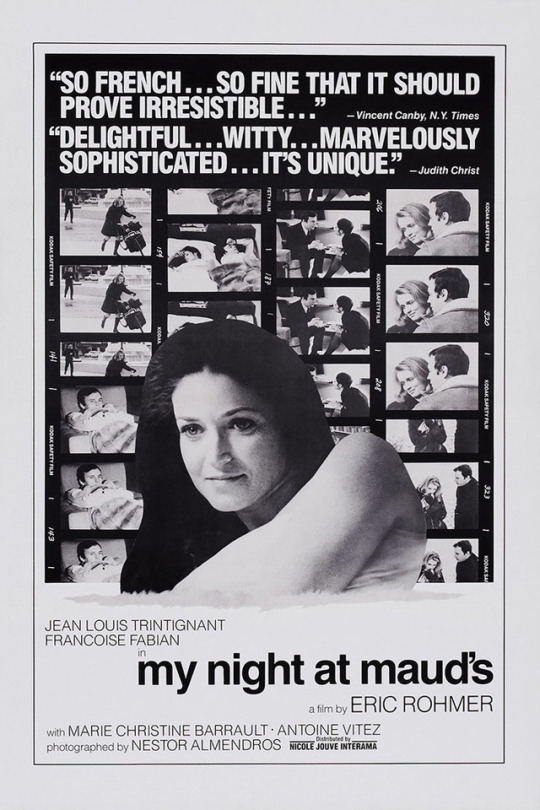
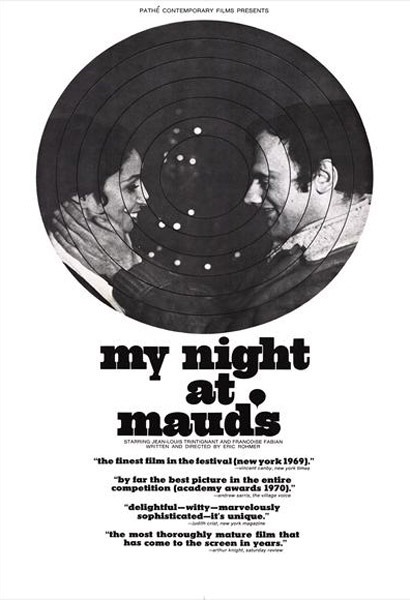

4th moral tale - Ma nuit chez Maud / My Night at Maud’s (1969)
France | Éric Rohmer | 105min
#ma nuit chez maud#my night at maud's#eric rohmer#Jean Louis Trintignant#antoine vitez#francoise fabian#marie christine barrault#drama#romance#france#movies 1960s#1969#moral tales
3 notes
·
View notes
Text
Ok. Listen. “Not to me, not if it’s you.” is a very fine and good moment but did you know that in his 1986 staging of Sophocles’ Elektra, Antoine Vitez had Pylades walk on stage CARRYING a sleeping Orestes, and then proceed to assist him in everything he undertakes without saying a single word, for the entire duration of the play ? Did you know ? Do you realize the impact this can have on a young gay mind ?
#many stagings of elektra just do away entirely with pylade since it's a non-speaking role#but antoine vitez was a wise man and he Understood#sophocles#Electre#yes i have entered a terrible elektra-related spiral#yes i would love to apologize for anything i might say or do during said spiral
12 notes
·
View notes